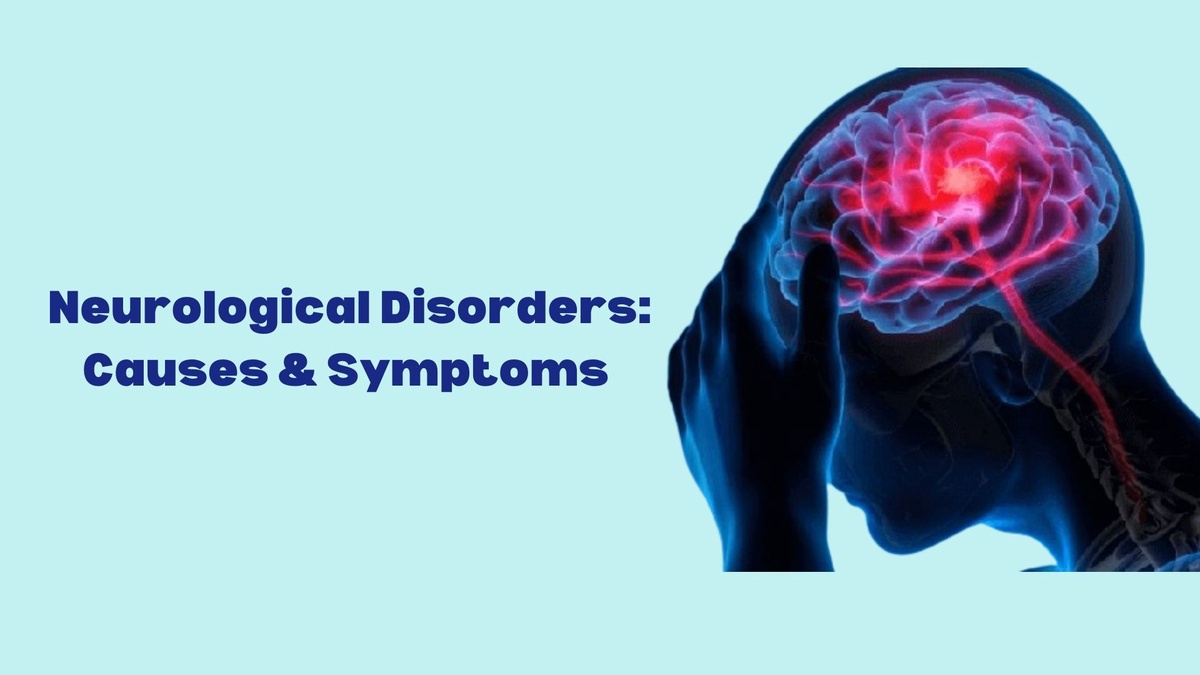The intricate and remarkable human nervous system, encompassing the brain, spinal cord, and an elaborate network of nerves, stands as a marvel of complexity. Within the realm of neurological health, the impact of disorders on this intricate system extends from motor function to cognitive abilities. In this blog post, we explore the causes and symptoms of neurological disorders, offering insight into the complexities of these conditions with a focus on the best neuro hospital in Coimbatore.
Causes of Neurological Disorders:
1. Genetic Predisposition:
Neurological disorders can often have a genetic component. Certain conditions, such as Huntington's disease or muscular dystrophy, are directly linked to inherited genetic mutations. Understanding one's family medical history is crucial for identifying potential genetic predispositions.
2. Infections Impacting the Nervous System:
Viral or bacterial infections can wreak havoc on the nervous system. Meningitis and encephalitis are examples of infections that lead to inflammation in the brain or spinal cord. Swift treatment is essential to prevent lasting damage.
3. Traumatic Events:
Head injuries or trauma to the spine can result in neurological disorders. Concussions, brain contusions, or spinal cord injuries may cause cognitive impairment, paralysis, or other lasting neurological deficits.
4. Autoimmune Assault:
Conditions where the immune system turns against the body can affect the nervous system. Multiple sclerosis (MS) is a prime example, where the immune system attacks the protective covering of nerve fibers, leading to a range of neurological symptoms.
5. Metabolic Imbalances:
Disorders affecting metabolism can impact the nervous system. Phenylketonuria (PKU), for instance, is a genetic metabolic disorder that, if untreated, can result in intellectual disabilities.
6. Degenerative Processes:
Neurodegenerative disorders involve the progressive deterioration of nerve cells. Alzheimer's disease, Parkinson's disease, and amyotrophic lateral sclerosis (ALS) fall into this category, posing significant challenges due to their irreversible nature.
7. Vascular Complications:
Disorders affecting blood vessels can compromise blood flow to the brain, resulting in neurological symptoms. Stroke, transient ischemic attacks (TIAs), and cerebral hemorrhage are examples of vascular disorders demanding immediate attention.
8. Toxic Exposure:
Exposure to toxins, chemicals, or certain substances can harm the nervous system. Lead poisoning, mercury poisoning, or exposure to specific drugs or chemicals can lead to neurological damage.
Symptoms of Neurological Disorders:
1. Persistent Headaches:
Chronic or severe headaches can be indicative of various neurological disorders, including migraines, tension headaches, or conditions affecting the brain.
2. Uncontrolled Seizures:
Seizures may result from abnormal electrical activity in the brain. Epilepsy is a neurological disorder characterized by recurrent seizures, impacting millions worldwide.
3. Motor Dysfunction:
Neurological disorders often affect motor function, resulting in symptoms such as weakness, tremors, muscle stiffness, and challenges with coordination and balance.
4. Altered Sensory Perception:
Changes in sensory perception, such as numbness, tingling, or loss of sensation, may be indicative of neurological disorders like peripheral neuropathy.
5. Cognitive Impairment:
Memory loss, confusion, difficulty concentrating, and changes in cognitive function may signal neurological disorders, including Alzheimer's disease or other forms of dementia.
6. Mood and Behavioral Changes:
Neurological disorders can impact mood and behavior, contributing to conditions like depression, anxiety, personality changes, and altered emotional responses.
7. Speech and Language Difficulties:
Disorders affecting the brain's language centers can result in speech and language difficulties, with aphasia being a prime example.
8. Visual Disturbances:
Changes in vision, such as blurred vision, double vision, or visual field defects, may be associated with neurological disorders affecting the eyes or optic nerves.
In conclusion, neurological disorders are intricate and have a profound impact on an individual's life. Early identification, precise diagnosis, and an all-encompassing treatment strategy are crucial for effectively managing these conditions. If you or someone you know is exhibiting symptoms indicative of a neurological disorder, it is essential to promptly seek the expertise of the best neurologist in Coimbatore for timely intervention and enhanced outcomes. Grasping the causes and symptoms serves as the initial stride toward a more holistic approach to neurological well-being.


No comments yet